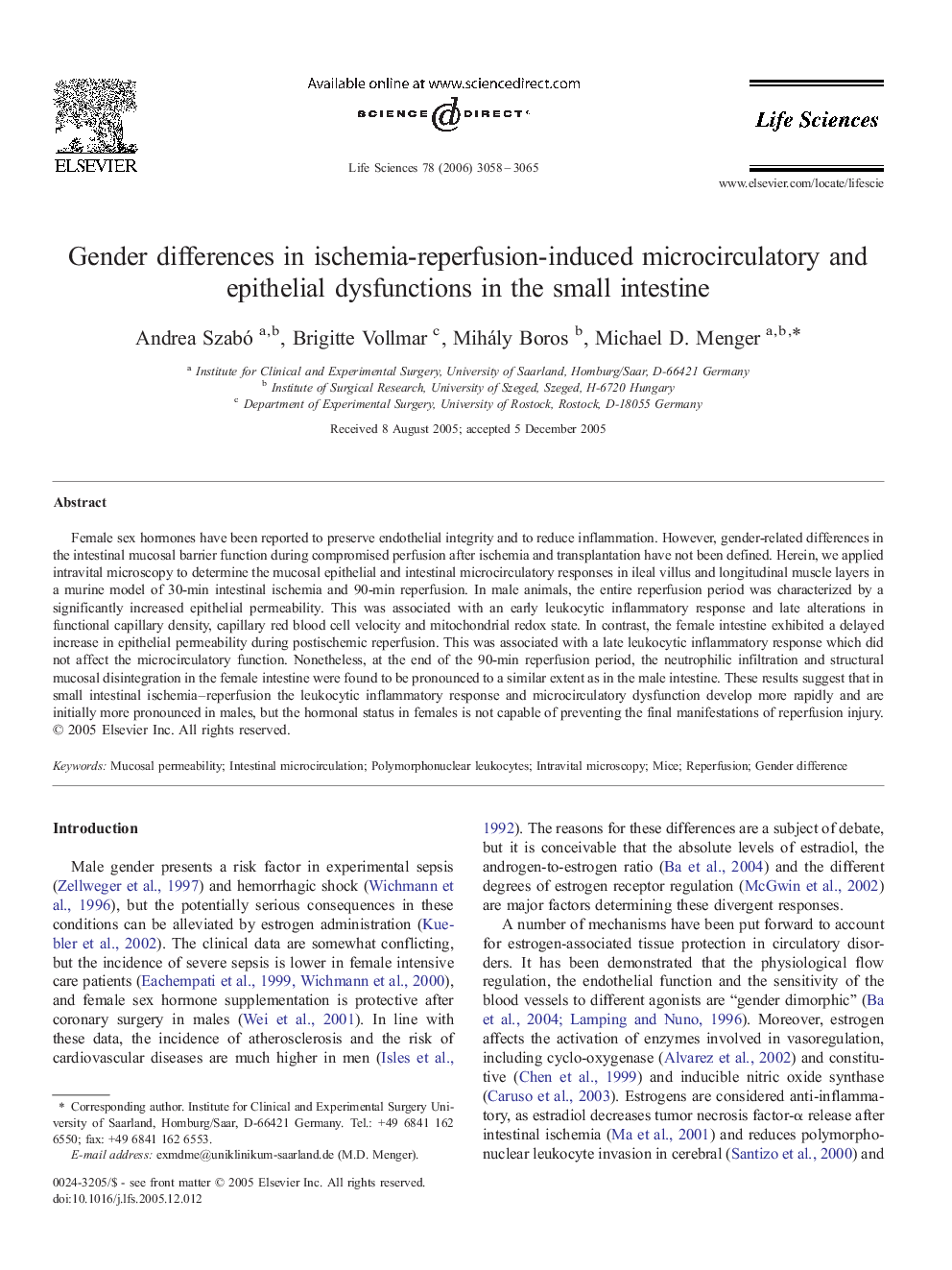| Article ID | Journal | Published Year | Pages | File Type |
|---|---|---|---|---|
| 2554361 | Life Sciences | 2006 | 8 Pages |
Abstract
Female sex hormones have been reported to preserve endothelial integrity and to reduce inflammation. However, gender-related differences in the intestinal mucosal barrier function during compromised perfusion after ischemia and transplantation have not been defined. Herein, we applied intravital microscopy to determine the mucosal epithelial and intestinal microcirculatory responses in ileal villus and longitudinal muscle layers in a murine model of 30-min intestinal ischemia and 90-min reperfusion. In male animals, the entire reperfusion period was characterized by a significantly increased epithelial permeability. This was associated with an early leukocytic inflammatory response and late alterations in functional capillary density, capillary red blood cell velocity and mitochondrial redox state. In contrast, the female intestine exhibited a delayed increase in epithelial permeability during postischemic reperfusion. This was associated with a late leukocytic inflammatory response which did not affect the microcirculatory function. Nonetheless, at the end of the 90-min reperfusion period, the neutrophilic infiltration and structural mucosal disintegration in the female intestine were found to be pronounced to a similar extent as in the male intestine. These results suggest that in small intestinal ischemia-reperfusion the leukocytic inflammatory response and microcirculatory dysfunction develop more rapidly and are initially more pronounced in males, but the hormonal status in females is not capable of preventing the final manifestations of reperfusion injury.
Keywords
Related Topics
Health Sciences
Medicine and Dentistry
Cardiology and Cardiovascular Medicine
Authors
Andrea Szabó, Brigitte Vollmar, Mihály Boros, Michael D. Menger,
